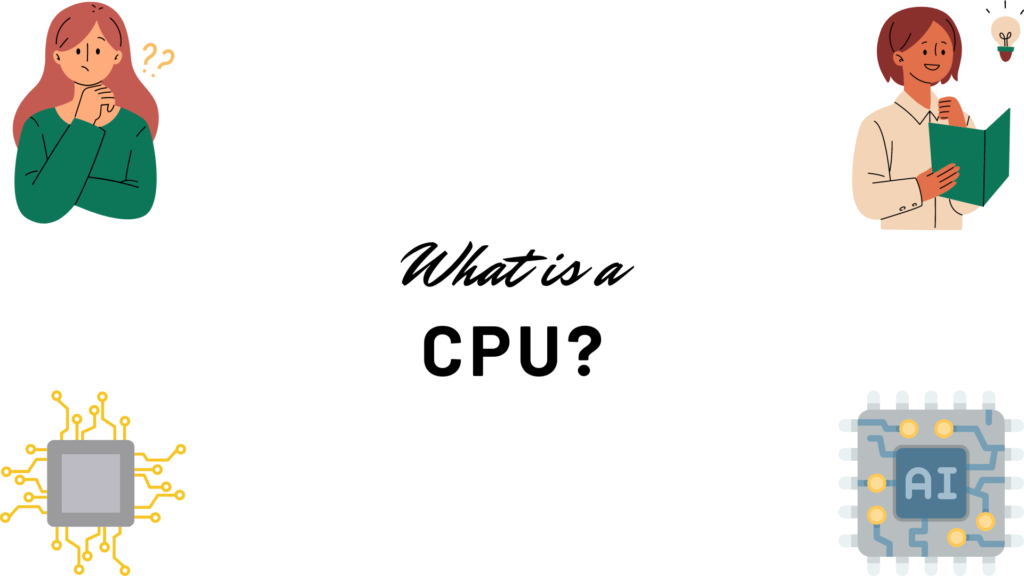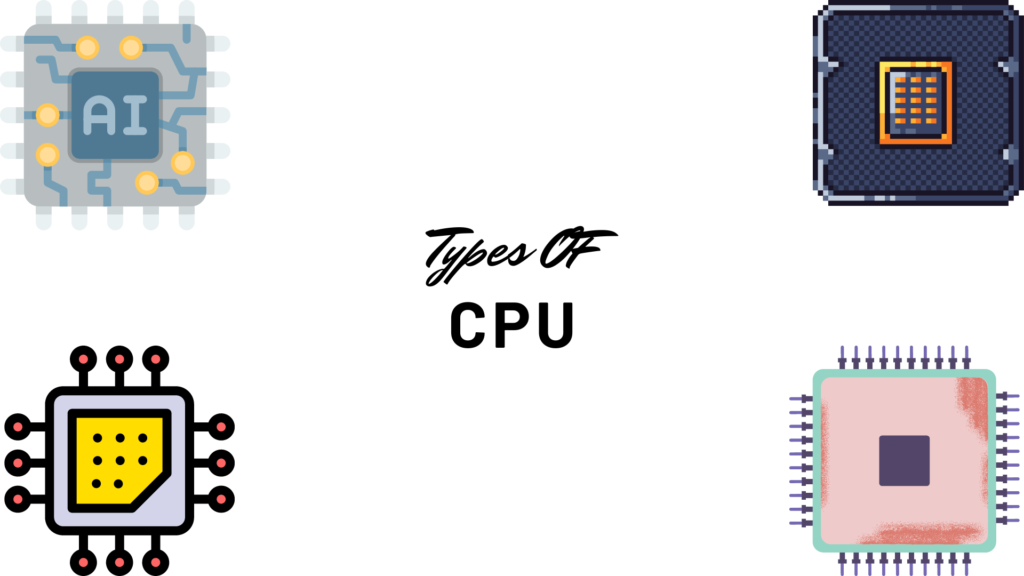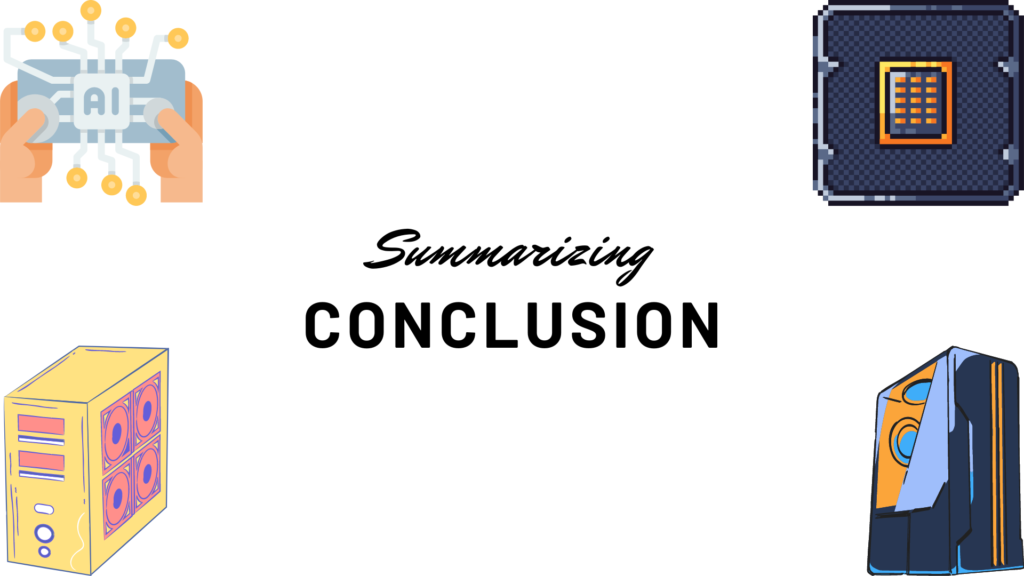Physical Address
304 North Cardinal St.
Dorchester Center, MA 02124
Physical Address
304 North Cardinal St.
Dorchester Center, MA 02124

What is CPU? The CPU’s essential role, or Central Processing Unit, lies in serving as the primary component of a computer responsible for executing instructions from programs. It acts as the “brain” of the system, carrying out arithmetic and logic operations, managing data, and coordinating various tasks to ensure the smooth functioning of the computer. Essentially, the CPU interprets and processes instructions, making it a pivotal component in the execution of virtually all computing operations.
Arithmetic Logic Unit (ALU): The ALU serves as the computational powerhouse of the CPU, specializing in performing arithmetic and logical operations. From basic tasks like addition and subtraction to complex logical comparisons, the ALU plays a pivotal role in crunching numbers and making decisions based on the data it processes. Its efficiency is a key factor in the overall speed and capability of the CPU.
Control Unit: Comparable to the conductor of an orchestra, the Control Unit orchestrates the flow of data within the CPU and coordinates communication with other system components. This crucial component ensures that instructions are executed in the correct sequence and at the appropriate times. By managing the fetch, decode, execute, and write-back stages of instruction execution, the Control Unit is central to the CPU’s ability to perform tasks with precision and efficiency.
Registers: Registers act as swift, temporary storage locations embedded directly within the CPU. These high-speed memory units hold data that is currently being processed or frequently accessed. Think of registers as the CPU’s workbenches, where it can quickly manipulate and store data without needing to fetch it from slower, external memory sources. The efficient use of registers enhances the overall speed and responsiveness of the CPU, making it adept at handling diverse computing tasks.
In essence, the collaboration of the Arithmetic Logic Unit (ALU), Control Unit, and Registers within the Central Processing Unit (CPU) forms the backbone of computational capabilities. Their intricate interplay ensures that a computer can swiftly and accurately execute the diverse instructions required for tasks ranging from simple arithmetic calculations to complex data processing and decision-making. The CPU, often referred to as the brain of the computer, orchestrates these components to perform various operations. So, what is CPU? It is the core processing unit that manages and executes instructions, playing a pivotal role in the overall functionality of a computer system.

Let’s talk about the brains of our computers—the CPUs! They come in two flavors: single-core and multi-core.
These are like the solo artists of the CPU world, managing one task at a time. While they’re good at handling tasks one after the other, juggling multiple things simultaneously might not be their strong suit.
Imagine a CPU with multiple brains working together—it’s like a team of experts! Multi-core processors can handle several tasks at the same time, making them super efficient, especially when you’re running multiple applications simultaneously.
Now, let’s dive into the central CPU and its sidekick, the Graphics Processing Unit (GPU).
“what is CPU” The CPU is like the all-rounder on your team. It handles everything, from managing the system’s basic functions to running your favorite apps. It’s your go-to for general computing tasks.
Think of the GPU as the specialist in graphics and heavy lifting. It’s fantastic for tasks like gaming and anything that involves a lot of graphical work. While the CPU is the jack-of-all-trades, the GPU is the graphics maestro.
Understanding these CPU types helps you make informed choices based on what you want your computer to excel at—whether it’s smooth multitasking or graphic-intensive applications.

Von Neumann Architecture: This design keeps both data and instructions in the same memory pool. It’s like having a one-stop shop for everything. Simple, but sometimes fetching data and instructions from the same place can slow things down.
Harvard Architecture: Now, Harvard architecture separates data and instructions into different memory spaces. This can speed things up because it allows the CPU to fetch data and execute instructions at the same time, like a well-coordinated dance.
Now, let’s talk about the heartbeat of CPUs—the clock speed—and how it affects performance.
Think of clock speed as the rhythm of your CPU, measuring how fast it can handle instructions. Higher clock speed usually means faster performance, but it’s not the only thing that matters.
While a higher clock speed is like having a speedy runner, other things, like how well the CPU is designed and how many tasks it can handle at once, also influence overall performance. It’s like having a great runner on a well-designed track with teammates for the best results.
Understanding these CPU details gives us a peek into how they process information and why some computers feel faster than others.
Let’s step into the realm of the future—quantum computing.
Quantum Computing:
Picture a leap beyond traditional binary computing. Quantum computing harnesses the principles of quantum mechanics, using quantum bits (qubits) to process information in ways that defy classical computing limits. It’s a revolutionary shift with the potential to solve complex problems exponentially faster than today’s computers.
Now, let’s explore the expanding role of Artificial Intelligence (AI) in shaping the future of CPUs.
AI Integration:
CPUs are becoming more intertwined with AI capabilities. From enhancing machine learning tasks to enabling more intelligent decision-making, the synergy between CPUs and AI is transforming how we interact with technology.
As we peer into the future, the convergence of quantum computing and the integration of AI into CPU functionality promise exciting possibilities, opening doors to unprecedented computational power and problem-solving capabilities.

Let’s distill the essence of our journey through the intricate world of CPUs.
Central Insights:
Revisiting the core components, architecture nuances, and performance factors provides a holistic understanding of CPU functionality. CPUs, often referred to as the brains of computers, play a pivotal role in executing a wide array of tasks, from simple calculations to complex computations.
The Pulse of CPUs:
Clock speed, architectural choices, and the balance between single-core and multi-core configurations collectively define how CPUs operate and impact our computing experiences. Understanding “what is CPU” entails grasping these key elements, where clock speed determines processing speed, architectural choices influence efficiency, and multi-core configurations enhance parallel processing capabilities.
As we conclude, it’s vital to recognize the enduring significance of CPUs in propelling technological advancements.
Ongoing Technological Drivers:
CPUs remain at the heart of innovation, steering advancements in computing, from the emergence of quantum computing to the integration of AI. Exploring “what is CPU” reveals its central role in driving these technological frontiers, adapting to new challenges and opportunities presented by quantum computing and artificial intelligence.
Technology’s Backbone:
CPUs continue to be the backbone of our technological landscape, shaping the way we interact with devices and driving the evolution of computing capabilities. Delving into “what is CPU” not only elucidates their current importance but also underscores their pioneering role, guiding us into an exciting and ever-expanding digital future where the significance of CPUs will persist as a cornerstone of technological progress.
DoFollow:
I’m really inspired together with your writing talents and also with the layout on your blog. Is that this a paid theme or did you customize it yourself? Either way stay up the excellent high quality writing, it’s rare to see a great weblog like this one nowadays..
I’ve recently started a site, the information you provide on this web site has helped me tremendously. Thank you for all of your time & work.
I’m not that much of a online reader to be honest but your blogs really nice, keep it up! I’ll go ahead and bookmark your site to come back later. Cheers
You made some decent factors there. I looked on the internet for the difficulty and located most people will go together with along with your website.
whoah this blog is magnificent i love reading your articles. Keep up the great work! You know, a lot of people are looking around for this information, you can aid them greatly.
I’ve been exploring for a little bit for any high-quality articles or weblog posts on this sort of area . Exploring in Yahoo I ultimately stumbled upon this web site. Studying this information So i’m satisfied to show that I have a very excellent uncanny feeling I found out exactly what I needed. I such a lot surely will make certain to don’t disregard this website and give it a glance regularly.
you’re truly a excellent webmaster. The web site loading speed is amazing. It seems that you are doing any unique trick. Furthermore, The contents are masterpiece. you’ve done a great task on this topic!
Hey very cool website!! Man .. Beautiful .. Amazing .. I’ll bookmark your site and take the feeds also…I’m happy to find numerous useful info here in the post, we need work out more techniques in this regard, thanks for sharing. . . . . .
Hello, i think that i noticed you visited my weblog so i got here to “go back the choose”.I’m attempting to in finding issues to improve my website!I guess its good enough to make use of a few of your ideas!!
We’re a group of volunteers and starting a new scheme in our community. Your website offered us with helpful information to paintings on. You have performed a formidable process and our entire neighborhood might be grateful to you.
My brother recommended I may like this blog. He used to be entirely right. This post actually made my day. You cann’t consider just how a lot time I had spent for this info! Thank you!
There is perceptibly a bundle to realize about this. I feel you made certain good points in features also.
In the great design of things you secure a B+ for effort and hard work. Where you actually lost everybody ended up being on all the details. You know, as the maxim goes, the devil is in the details… And it could not be much more accurate at this point. Having said that, permit me tell you just what did work. Your writing is quite convincing and that is most likely why I am making an effort in order to comment. I do not really make it a regular habit of doing that. 2nd, even though I can see a jumps in reason you make, I am not certain of just how you appear to connect your details which inturn produce the actual final result. For the moment I shall subscribe to your issue but wish in the foreseeable future you actually link the dots better.
Have you ever thought about publishing an e-book or guest authoring on other blogs? I have a blog centered on the same ideas you discuss and would love to have you share some stories/information. I know my audience would value your work. If you are even remotely interested, feel free to shoot me an e-mail.
Wow, fantastic weblog layout! How lengthy have you been running a blog for? you make running a blog glance easy. The whole glance of your website is great, let alone the content material!
Wow! This could be one particular of the most helpful blogs We have ever arrive across on this subject. Actually Magnificent. I’m also a specialist in this topic therefore I can understand your effort.
Thanks for some other informative blog. Where else could I am getting that kind of information written in such an ideal manner? I have a challenge that I’m just now working on, and I have been on the glance out for such information.